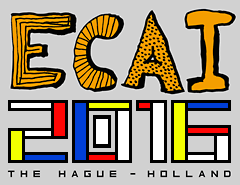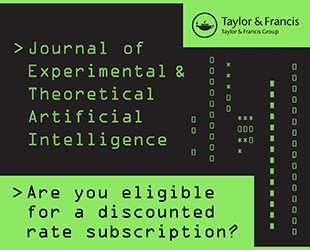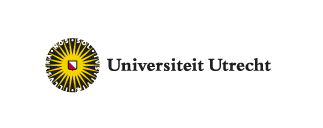The 2016’s Conference on Prestigious Applications of Intelligent Systems – PAIS 2016, will be colocated with the European Conference on Artificial Intelligence, ECAI 2016, from 31 August 2 September 2016, in The Hague, The Netherlands.
The PAIS 2016 Programme Committee invites papers describing innovative applications of AI techniques to realworld systems and problems to be submitted to the Technical Programme of the 9th International Conference on Prestigious Applications of Intelligent Systems a subconference of the 22nd European Conference on Artificial Intelligence (ECAI 2016). Artificial Intelligence (AI) is a central topic in contemporary computer science and has enabled many groundbreaking developments which have significantly influenced our society. Techniques, concepts, and results developed under the banner of AI research have proven to be of fundamental importance in areas such as medicine, biology, economics, philosophy, linguistics, psychology and engineering; also, have proven to have a significant impact on several realworld applications, such as ecommerce, tourism, egovernment, national security, manufacturing and other economic sectors. Consequently, AI has become increasingly important in neighbouring fields and therefore remains a topic of continuing fascination in our culture.
Papers highlighting all aspects of the application of intelligent systems technology are most welcome. Our aim is to provide a forum for academic and industrial researchers and practitioners to share experience and insight on the applicability, development and deployment of intelligent systems. PAIS is the largest showcase of real applications using AI technology in Europe and is the ideal place to meet developers of successful applications.
Under the general theme of “AI for human values”, PAIS 2016/ECAI 2016 will be held in the city of The Hague, seat of the International Court of Justice. The theme “AI for human values” is appropriate to this location, and highly relevant to the PAIS conference.
Topics of Interest
Papers on all novel and significant applications of intelligent systems are welcome. In particular, we encourage submissions on deployed (in production use for some time) and emerging applications (in field testing). Papers considering deployed applications should clearly highlight the benefits of the application, describe how AI methods are applied or enhanced, and finally present the contribution of AI methods to the overall success. For emerging applications authors must convincingly argue the benefits of the productive use.
The following list of AI application areas is indicative only:
- Active lifestyle and sport
- Assisted Living
- Aerospace
- Autonomous Vehicles
- Digital Humanities
- Energy
- Engineering
- Ecology
- Education
- Life Sciences and Medicine
- Marketing
- Mobile Computing and the Internet
- Multimedia
- Persuasive Technologies
- Production
- Process management
- Sales assistance
- Sensor Networks
- Smart Retail
- Smart Surroundings
Important Dates
- Paper submission: 15th April 2016 (23:59:59 CET)
- Author feedback: 29th31st May 2016
- Notification of acceptance/rejection: 7th June 2016
Submission
Both long and short papers can be submitted. While long papers should report on substantial results, short papers are intended for highly promising but possibly more preliminary work. Rejected long papers will be considered for the short paper track.
Formatting: Submitted papers must be formatted according to the cameraready style for ECAI 2016. Long papers must not exceed six (6) pages and short papers must not exceed two (2) pages. Overlength submissions will be rejected without review. Details of the ECAI 2016 formatting style are available here.
Originality: Submissions must be original and in particular should not have been formally published, accepted for publication or under review. Also, submissions must not be submitted elsewhere during the PAIS 2016 reviewing phase.
Submitting and Reviewing: Submission and review of papers for PAIS 2016 will be managed via Easychair: https://easychair.org/conferences/?conf=pais16.
All submissions will be subject to peer review by the PAIS 2016 Programme Committee and evaluated on the basis of relevance, significance of contribution, impact, technical quality, scholarship and quality of presentation. During the author feedback phase, the (primary) authors of submitted papers will be offered the opportunity to respond to the reviews for their papers before the final decision on acceptance or otherwise is made.
Based on the recommendations made by the reviewers and a separate award committee, one of the accepted long papers will receive the “best PAIS paper award”.
Proceedings and presentation
The proceedings of PAIS 2016 will be included in the proceedings of the full ECAI 2016 conference and will be published and distributed by IOS Press as an online open access book. The proceedings of recent ECAI conferences are freely available on the IOS website.
Authors of accepted papers must provide cameraready versions in PDF format, conforming to the ECAI 2016 format. Furthermore, at least one author of each accepted long or short paper must attend the conference to present the contribution. Long papers will be presented as talks; short papers will be presented in poster form.
All PAIS participants have to register for the ECAI conference.
Organisation
PAIS 2016 Conference Chairs:
- Eyke Hüllermeier (University of Paderborn, Germany)
- Paolo Bouquet (University of Trento, Italy OKKAM srl, Italy)
Contact: pais-chairs@ecai2016.org





